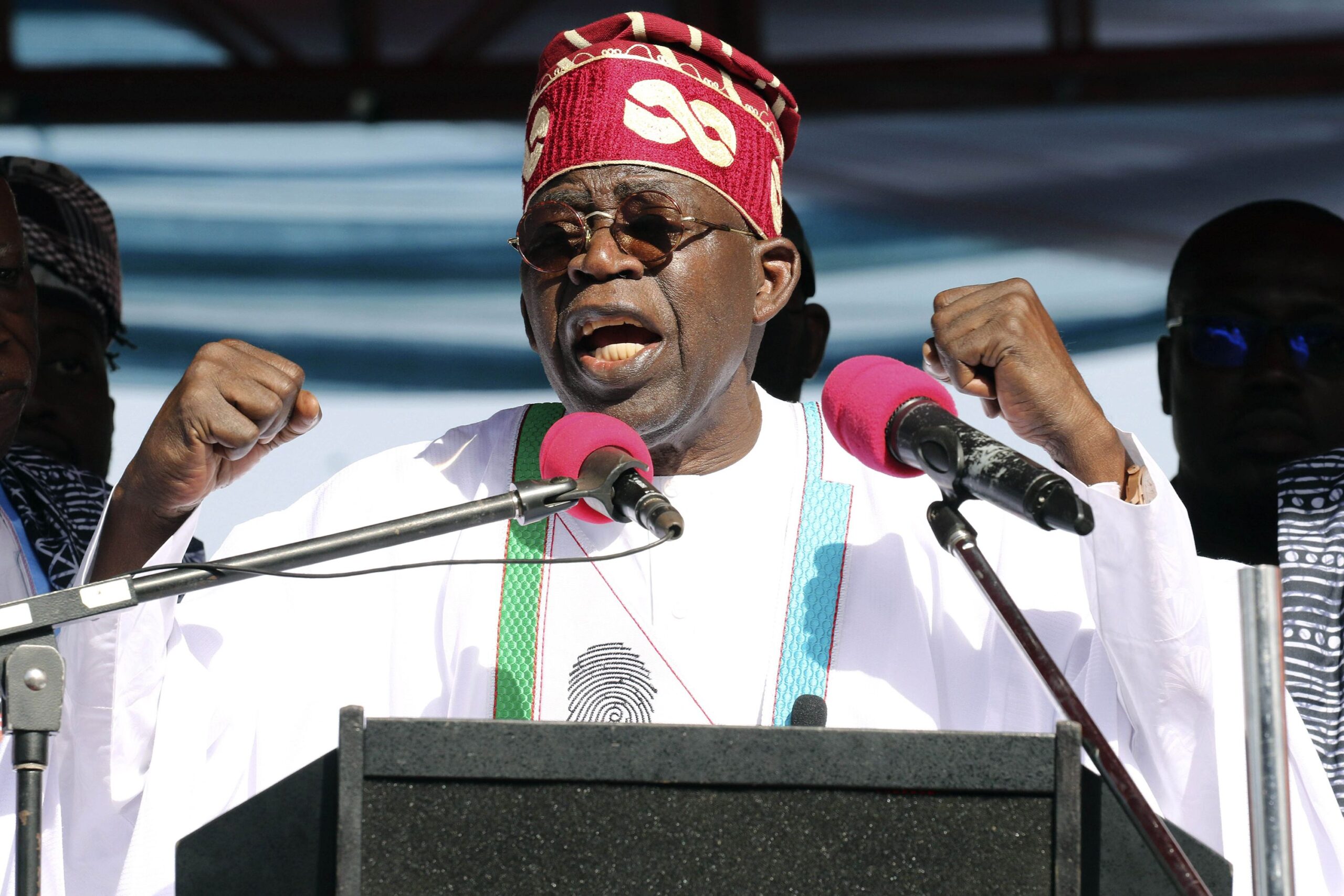Politics, monetary policy and Tinubu
Inaugural speeches provide an important platform for newly elected presidents to articulate their vision, policies, and priorities, effectively setting the stage for their administration. It is not uncommon for presidents to address issues under various government institutions’ purview, including those under the sphere of the independent central bank. President Tinubu’s inaugural speech showcased his commitment […]

Inaugural speeches provide an important platform for newly elected presidents to articulate their vision, policies, and priorities, effectively setting the stage for their administration. It is not uncommon for presidents to address issues under various government institutions’ purview, including those under the sphere of the independent central bank.
President Tinubu’s inaugural speech showcased his commitment to economic governance by addressing pertinent topics such as the unification of multiple exchange rates, the reduction of interest rates from 18.5 per cent and the coexistence of both old and new currencies as legal tenders. These are short-term policies that will yield an immediate impact on the economy.
Experience tells us that the relationship between politics and monetary policy is a nuanced and multifaceted one, especially evident in the context of President Tinubu’s inaugural speech and the role played by Emefiele during the campaign of the 2023 elections.
While it is not uncommon for presidents to address economic matters in their speeches, it is essential to strike a delicate balance that respects the independence and credibility of the central bank.
Tinubu tasked on welfare of persons living with disabilities
Senate amends ICPC Act, slams 2 year-jail term on false petitioners
As the Central Bank Act 2007 stipulated, the CBN is independent. Its independence ensures that monetary and credit policies are formulated and executed without undue political influence. It has the sole right to issue currency, and the board of directors is responsible for formulating and implementing the exchange rate policy.
It is important to note that independence does not mean the central bank operates in complete isolation from the government or the president.
Given the powers at hand, it is imperative to have competent individuals who do not misuse the institution’s authority for political purposes. However, with Emefiele, Nigeria found a governor who was inconsistent and incoherent in carrying out his duties to the extent that his incompetence is interpreted as sabotage against President Tinubu.
Therefore, as a politician and the head of the government, the president may have a legitimate interest in expressing concerns or expectations regarding economic policies, including those related to the central bank.
By focusing on these here-and-now economic policies, President Tinubu revealed his intention to shape Nigeria’s financial landscape while capturing the delicate balance between political leadership and the independent role of monetary institutions. Therefore, the public needs to understand the intricacies of President Tinubu’s call for monetary policy unity, examine its implications, and explore the symbiotic relationship between politics and economic stability.
Tinubu’s inaugural speech made waves within the financial community as he artfully drew an analogy between the unification of diverse elements in nature and the urgent need for monetary policy reform in Nigeria. Comparable to the harmonious symphony that requires a conductor to synchronise multiple instruments, Tinubu’s vision emphasises the importance of a unified approach to Nigeria’s economic landscape. His proposed reforms encompassed significant measures, including the unification of multiple exchange rates, the reduction of interest rates, and the acceptance of both old and new currencies as legal tenders.
In the intricate dance of economic governance, the delicate balance between political leadership and the independent realm of monetary institutions remains a crucial consideration. Just as a tightly choreographed ballet relies on synchronised movements, coordinating between the president and the central bank is essential for a harmonious economic performance.
Tinubu’s stance echoes the vital role played by the CBN in spearheading these reforms, reflecting his commitment to transparency, accountability and economic stability. Consequently, intriguing questions arise regarding the intricate relationship between politics and monetary policy, highlighting the significance of President Tinubu’s address.
The president’s engagement in making a monetary policy statement could potentially enhance the transparency and accountability of the central bank. If President Tinubu’s statements align with and support the decisions and policies of the CBN, it could reinforce public trust and confidence in the central bank’s actions. By publicly addressing key economic concerns such as the exchange rate, interest rates, and currency coexistence, Tinubu demonstrates a commitment to open communication and coordination between fiscal and monetary policy.
By fostering transparency, accountability, and open communication between political leadership and monetary institutions, Nigeria can strive towards an environment where economic stability, growth, and the welfare of its citizens can thrive.
On a cautionary note, there exists a potential for discord when a president makes a monetary policy statement that contradicts or pressures the central bank’s decisions, as it can undermine the institution’s independence and credibility. This situation resembles a dancer veering off-script and challenging the choreographer’s artistic direction. Therefore, caution must be exercised to avoid undermining the central bank’s independence, as political pressures and conflicting statements can introduce uncertainty and hinder the effectiveness of monetary policy. Such actions can create confusion and uncertainty in the markets and among the public, compromising the effectiveness of monetary policy.
Nevertheless, Tinubu’s statement indicates a commitment to economic governance, and his proposed reform demonstrates a purposeful intent to stimulate the economy in the short term. But for any success to happen, his government must not begin with dithering, like the previous one. That means the policy implementation must be swift.
Personally, I hope he orchestrates a harmonious blend of policies and initiatives to strike the right chords and create a vibrant symphony of economic growth, regardless of the verdict of the Presidential Election Petition Tribunal.
